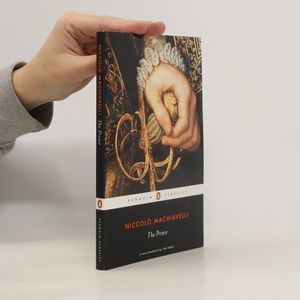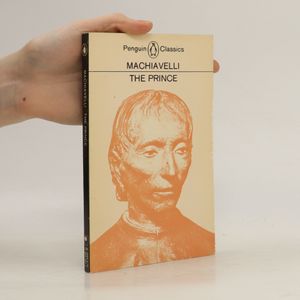The book is currently out of stock

Parameters
- 156 pages
- 6 hours of reading
More about the book
Focusing on the challenges faced by a new ruler, Machiavelli outlines strategies for maintaining power in "The Prince." He contrasts the easier path of hereditary princes with the complexities of new leadership, emphasizing the need for public virtue while potentially engaging in morally questionable actions for the greater good. Unlike other political treatises, it avoids idealism, instead providing practical examples from Machiavelli's diplomatic experiences and ancient history. The text reflects Renaissance influences through its use of Latin and classical references.
Language
Publication
- 2024

- 2024

- 2023

- 2023

- 2023

- 2023

- 2023

- 2023

- 2023

- 2022

- 2022

- 2022

- 2022

- 2022

- 2022

- 2022

- 2022

- 2022

- 2022

- 2021

- 2021

- 2021

- 2021

- 2021

- 2021

- 2021


- 2020

- 2020

- 2020

- 2020

- 2020

- 2020

- 2020

- 2020

- 2020

- 2020

- 2020

- 2020

- 2020

- 2020

- 2020

- 2020


- 2019

- 2019

- 2019

- 2019

- 2018

- 2018

- 2018

- 2018

- 2018

- 2018

- 2018

- 2018

- 2018



- 2017

- 2017

- 2017

- 2017

- 2017

- 2016

- 2016

- 2016


- 2015

- 2015

- 2015

- 2015

- 2014




- 2012

- 2012

- 2012

- 2012

- 2012



- 2011

- 2011

- 2011

- 2011

- 2011

- 2011

- 2010




- 2009

- 2009

- 2009



- 2008

- 2008


- 2008

- 2006


- 2005

- 2005





- 1998



- 1995


- 1992


- 1986

- 1984










Book purchase
The Prince, Niccolò Machiavelli
- Language
- Released
- 2009
We’ll email you as soon as we track it down.
Payment methods
We’re missing your review here.